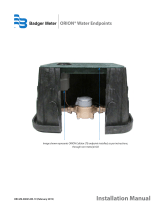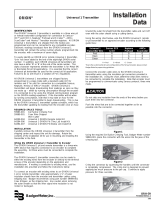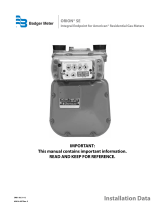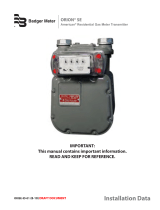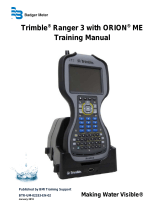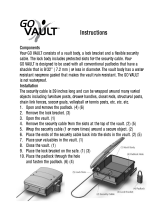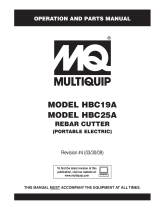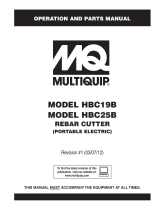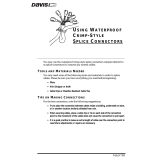Page is loading ...

ORION®
Water Endpoint
Installation Data
ORI-I-79 (11-11)
62014-144 Rev. 2
IMPORTANT:
This manual contains important information.
READ AND KEEP FOR REFERENCE.

ORION® Water Endpoint
Page ii
11-11

Installation Data
CONTENTS
Overview ...................................................................................................................................................................5
Product Unpacking and Inspection ........................................................................................................................5
License Requirements ..............................................................................................................................................5
Identication ............................................................................................................................................................6
Network Endpoint Installation ................................................................................................................................ 7
Splicing Considerations ...........................................................................................................................................7
ORION Installation Kit Part Numbers ......................................................................................................................7
Pit Installation ...........................................................................................................................................................8
Through the Lid Installation Kit (SE, ME and CE Endpoints) .................................................................................8
Below Lid with Knuckles Installation Kit (ME and CE Endpoints) .........................................................................9
Integrated Pit Lid Hanger Installation Kit (ME and CE Endpoints) .....................................................................10
Vault Installation Kit (ME and CE Endpoints) .......................................................................................................10
Remote Installation ................................................................................................................................................11
Remote Wall Mount Box Enclosure Kit (SE, ME and CE Endpoints) .....................................................................11
Remote Installation Bracket Kit (SE, ME and CE Endpoints) ...............................................................................14
Wiring a Universal Endpoint .................................................................................................................................. 17
Universal Endpoint Identication .........................................................................................................................17
Required Splice Tools .............................................................................................................................................17
Wiring the ORION Universal Endpoint to an Encoder ..........................................................................................17
Encoder Register Installation ................................................................................................................................19
Page iii
11-11

ORION® Water Endpoint
Page iv
11-11

Installation Data
Overview
This manual contains installation and programming instructions for the ORION® water endpoint.
Proper performance and reliability of ORION endpoints depend upon installation in accordance with these instructions.
Product Unpacking and Inspection
Upon receipt of the product, perform the following unpacking and inspection procedures.
NOTE: If damage to the shipping container is evident upon receipt, request the carrier to be present when the product is
unpacked.
Carefully open the shipping package, follow any instructions that may be marked on the exterior. Remove all cushioning
material surrounding the product and carefully lift the product from the package.
Retain the package and all packing material for possible use in reshipment or storage.
Visually inspect the product and applicable accessories for any physical damage such as scratches, loose or broken parts or
any other sign of damage that may have occurred during shipment.
NOTE: If damage is found, request an inspection by the carrier’s agent within 48 hours of delivery and le a claim with
the carrier. A claim for equipment damage in transit is the sole responsibility of the purchaser.
Carefully remove the pre-wired ORION endpoint and encoder assembly or ORION endpoint from the shipping carton and
inspect for damage. Retain the contents of the installation kit for use in mounting the endpoint in the eld.
License Requirements
This device complies with Part 15 of FCC Rules. Operation of this device is subject to the following conditions: (1) This device
may not cause harmful interference, and (2) this device must accept any interference received, including interference that
may cause undesired operation of the device.
In accordance with FCC Regulations, “Code of Federal Regulations” Title 47, Part 2, Subpart J, Section 1091, transmitters pass
the requirements pertaining to RF radiation exposure. However, to avoid public exposure in excess of limits for general
population (uncontrolled exposure), a 40 centimeter distance between the transmitter and the body of the user must be
maintained during testing.
No FCC license is required by a utility to operate an ORION SE meter reading system.
This device complies with Industry Canada license-exempt RSS standard(s). Operation is subject to the following two
conditions: (1) this device may not cause interference, and (2) this device must accept any interference, including interference
that may cause undesired operation of the device. Le présent appareil est conforme aux CNR d'Industrie Canada applicables
aux appareils radio exempts de licence. L'exploitation est autorisée aux deux conditions suivantes : (1) l'appareil ne doit pas
produire de brouillage, et (2) l'utilisateur de l'appareil doit accepter tout brouillage radioélectrique subi, même si le brouillage
est susceptible d'en compromettre le fonctionnement.
IMPORTANT
Transportation: The Federal Aviation Administration prohibits operating endpoints and receivers on all commercial aircraft.
The ORION endpoint is considered an operating transmitter and cannot be shipped by air.
11-11
Page 5

ORION® Water Endpoint
Identication
Each ORION endpoint can be identied using the unique numeric serial number located on a tag attached to the wire harness
and etched on the top (CE) or side (SE, ME) of the endpoint housing. Each Badger Meter encoder is clearly identied on the
face of the register with an assembly number, unit of measure and meter model.
SE/ME Endpoint (Medium Gray) CE RTR® Endpoint (Black) CE ADE® Endpoint (Light Gray)
Recordall® Transmitter
Register (RTR
®
)
Absolute Digital
Encoder (ADE
®
)
Figure 1: Endpoints and Encoders
Page 6
11-11

Installation Data
Network Endpoint Installation
When installing an SE or ME (used with a network gateway transceiver) or CE (used with an ORION 4.0 or 2.0 gateway
receiver) endpoint in a pit, the endpoint must be mounted through the lid of a non-metal pit lid for maximum propagation
of the radio signal. If the endpoint is being installed indoors, a wired radio endpoint should be mounted on the outside
of the building or in the oor joist near the outside wall of the building, and away from large metal objects for maximum
propagation of the radio signal.
Splicing Considerations
For non-submerged indoor and outdoor applications where splicing is necessary, splice connections together and wrap any
cables inside the base of the housing.
Splice connections made in pit environments require a pit eld splice kit (62084-001), which can be ordered separately.
Please refer to RTR-I-15 for eld splice kit installation instructions.
ORION endpoints shipped factory pre-wired to a Badger Meter encoder require no splicing. Only the mounting of the
encoder to the meter and tightening the TORX® seal screw is necessary.
For all installations, excess wire should be coiled and cable tied to avoid any damage.
ORION Installation Kit Part Numbers*
TYPE DESCRIPTION ORION SE ORION ME ORION CE
PIT
Through the Lid Installation Kit 64394-024 64394-024 64394-001
Below Lid with Knuckles
Installation Kit
64394-025 64394-003
Integrated Pit Lid Hanger
Installation Kit
64394-026 64394-009
VAULT
Vault Installation Kit/Non-Standard
Permalog+
®
Installation Kit
64394-027 64394-008
REMOTE
Remote Wall Mount Box Enclosure Kit 64394-028 64394-028 64394-021
Remote Installation Bracket Kit 64394-029 64394-029 64394-019
* Refer to ORI-P-09 for individual endpoint installation kit components.
11-11
Page 7

ORION® Water Endpoint
Pit Installation
Through the Lid Installation Kit (SE, ME and CE Endpoints)
The Through the Lid Installation Kit is designed for use with a lid with maximum thickness of one-inch, and a standard
hole diameter of 1-7/8 inches.
Figure 2: ORION Pit Endpoint
To install the endpoint through the lid, follow these steps per Figure 2.
1. Screw the nut onto the tube threads as shown.
2. Insert the tube through the bottom of the lid.
3. Screw the top cap onto the tube threads as shown and tighten.
4. Tighten the nut against the bottom of the lid until secure.
If installing an ORION endpoint through a thick lid, you may use a Pit Tube Extender (67025-001) which requires a
two-inch diameter hole. With line of sight, RF performance will be reduced when using this extension.
Pit Lid
Top Cap
Nut
Tube
1" Maximum Pit Lid
Thickness
5.13
Page 8
11-11

Installation Data
Below Lid with Knuckles Installation Kit (ME and CE Endpoints)
For below the lid installations, a special mounting bracket (Figure 3) is available. This mounting support bracket is designed
for use with 3/8", 1/2" and 5/8" rebar or 1/2" schedule 40 PVC pipe.
Figure 3: Pit Support Bracket (Knuckles) - Top View
To install an ORION endpoint below a meter pit lid, follow these steps.
1. Drive rebar or stake into the ground.
Drive rebar or stake into the ground prior to attaching the endpoint to avoid damage.
2. Once in the ground, secure the mounting bracket on the appropriate rebar or pipe using the enclosed washer, wing
nut and hex head bolt provided with the bracket.
3. Insert the endpoint through the bottom of the bracket and thread the lock nut onto the top of the endpoint. For best
results, mount the endpoint a maximum of one to two inches below the underside of the lid.
Figure 4: Pit ORION Beneath Lid Installation
3/8" Rebar
Support Bracket
1/2" Rebar
1/2" Rebar
#6-32 wing nut
#6 washer
#6-32 x 3/4
hex head bolt
Hex head bolt can be placed
in any slot depending upon
the type of support used
1/2" schedule
40 PVC pipe
Meter Pit Lid
Lock Nut
Clamp
ORION
Endpoint
1/2" Schedule
40 PVC pipe
11-11
Page 9

ORION® Water Endpoint
Integrated Pit Lid Hanger Installation Kit (ME and CE Endpoints)
ORION endpoints can also be installed in composite and plastic lids with an integrated hanger for AMR/AMI endpoints. An
installation kit for installing an ORION pit endpoint to the lid is available.
To install an ORION endpoint to a composite or plastic lid, follow these steps.
1. Thread the lock nut onto the top of the ORION endpoint as shown.
2. Slide the endpoint into the lid bracket.
3. Tighten the lock nut so that the endpoint is held rmly in place.
Figure 5: Integrated Pit Lid Hanger Installation
Vault Installation Kit (ME and CE Endpoints)
When installation of the ORION endpoint occurs in a deep vault, Badger Meter oers a kit that can be used to mount the
endpoint to the side of the vault.
To install an ORION endpoint in a deep vault, follow these steps.
1. Mount the C-clamp on the side of the vault. Select a location close to the top of the vault that will not be damaged
when access to the meter is required.
2. Place the neoprene spacer supplied in the installation kit around the endpoint, approximately 1/2 inch from the
top of the endpoint.
3. Thread the locking ring on the endpoint until it makes contact with the neoprene spacer as shown in Figure 6.
4. Insert the endpoint into the C-clamp as shown.
5. Close the C-clamp and lock it in place so that it closes over the neoprene spacer and securely holds the endpoint.
NOTE: ORION radio endpoints perform best with a clear line of sight. Performance varies by installation and lid
construction.
C-Clamp
C-Clamp Around Endpoint
Figure 6: C-Clamp and Placement
Meter Pit Lid
Lid Bracket
Lid Bracket
ORION Endpoint
Page 10
11-11

Installation Data
Remote Installation
Remote Wall Mount Box Enclosure Kit (SE, ME and CE Endpoints)
The ORION Remote Wall Mount Box Enclosure Kit is for use with either the Recordall Transmitter Register (RTR) or Absolute
Digital Encoder (ADE) stepped tube and threaded tube ORION endpoint for remote mounting applications. The wall
mounted Remote Box Enclosure is designed for mounting ORION endpoints in indoor or outdoor environments and also
provides an environmentally protected area for gel splice connections (if needed) to be maintained inside the enclosure.
The ORION Remote Wall Mount Box Enclosure Kit is recommended for proper mounting of the ORION endpoint for remote
applications.
Remote Box Enclosure
ORION CE RTR Endpoint
Figure 7: Enclosure and Endpoint
To install an ORION endpoint using the Remote Box Enclosure, follow these steps.
1. Flip the Remote Box Enclosure over and look inside to verify the proper orientation. Locate the three security ribs
inside the Remote Box Enclosure to determine the top of the enclosure.
The bottom of the Remote Box Enclosure is identied by the two strain relief tabs located on both sides of the
enclosure housing and the hole in the bottom of the enclosure that allows access to the endpoint IR communication
port without having to disassemble the unit (Figure 8).
11-11
Page 11

ORION® Water Endpoint
Figure 8: Remote Box Enclosure Mounting
2. Place the endpoint into the ORION Remote Box Enclosure as shown in Figure 9. To ensure maximum endpoint
performance, it is important to mount the ORION endpoint in the proper orientation, with the endpoint antenna up
and ORION endpoint IR communication port and wire down.
3. Make certain the at side of the endpoint is facing the back of the enclosure, or toward the installer, when
inserting the ORION endpoint into the Remote Box Enclosure (Figure 9). When installing, mount the endpoint
antenna toward the top of the enclosure, between the security ribs.
NOTE: The arrow on the back of the Remote Box Enclosure points up, toward the top of the assembly.
When installing the Remote Box Enclosure to a wall, mount it with the arrow pointed up (toward the sky).
Figure 9: Endpoint Orientation
Top
Hole in Bottom
2 Strain Relief Tabs
3 Security Ribs
Endpoint Antenna
Security Ribs
Flat Side
Arrow
/" Wide Slot
Page 12
11-11

Installation Data
4. After the endpoint is mounted in the Remote Box Enclosure, loop the endpoint wire through the strain relief tab and
through the cut out on the bottom of the enclosure. If needed, gel splice connections can be made and kept inside
the Enclosure prior to mounting.
Figure 10: Endpoint Wire Positioning
5. Verify that the Remote Box Enclosure is properly positioned with the endpoint antenna up and the endpoint IR port
facing down. Secure the enclosure to the wall using appropriate customer-supplied screws.
Figure 11: Enclosure Positioning
Right Side
Strain Relief Tab
Cable out of
Bottom
11-11
Page 13

ORION® Water Endpoint
Remote Installation Bracket Kit (SE, ME and CE Endpoints)
The following instructions are provided to properly install an ORION endpoint in any indoor, outdoor or pit application. Prior
to beginning the installation procedure, ensure that the following items are available.
• Remote Installation Bracket Kit
• Two customer-supplied screws
• Screwdriver and drill
The Remote Installation Bracket securely mounts an ORION endpoint. For non-submerged indoor and outdoor applications,
the installation bracket can also be used to enclose gel-cap, wire-splice connections to protect them from the environment
and to prevent tampering in any indoor or outdoor non-metallic joist, wall or pit application.
To install the bracket to the housing, follow these steps.
1. Place the encoder cable harness through the slit in the bracket with the screw holes at the bottom.
NOTE: Carefully slide the cable harness through the slit in the bracket.
Figure 12: Cable Harness Threading
Slit
Screw Holes
.18" diameter
Page 14
11-11

Installation Data
2. Locate the small triangle aligned with the small hole on the bottom of the installation bracket. This triangle is used to
properly align the endpoint to the installation bracket.
Figure 13: Aligning Triangle
On the ORION endpoint, there is a small triangle printed on the lower side of the housing.
Figure 14: Housing Triangle
3. Align the two triangles and push the bracket and endpoint together.
Figure 15: Align Both Triangles
Triangle
Triangle
Triangle
11-11
Page 15

ORION® Water Endpoint
4. With the installation bracket in one hand and the housing in your other hand, hold the bracket still and twist the
housing approximately 1/4 turn clockwise until it clicks and locks into place.
Figure 16: Bracket and Housing Connection
To install the endpoint assembly, follow these steps.
1. Align the ORION endpoint and the installation bracket with the antenna facing upwards (Figure 17).
2. Using two customer-supplied screws, secure the endpoint and installation bracket assembly to a non-metallic joist
or wall.
Figure 17: Endpoint Positioning
Page 16
11-11

Installation Data
Wiring a Universal Endpoint
Universal Endpoint Identication
The ORION Universal endpoint is available in a three-wire pit or remote endpoint conguration for connection to Sensus®
ICE
TM
and ECR II, Neptune® ProRead and E-Coder™, Elster AMCo® ScanCoder
®, Hersey® and Metron Translator encoder
registers.
All ORION Universal endpoints are shipped from the factory pre-programmed and can be connected to any compatible
encoder. Electronic readings broadcast from the ORION Universal endpoint contain the active number wheels programmed
into the encoder, with a maximum of six digits.
The ORION system oers connectivity to any of the mechanical/absolute encoder registers listed above, ten years old or
newer, as long as the encoder is programmed into the three-wire output mode for AMR and has three wires connected to it.
Encoder registers that are currently in two-wire mode of operation require programming by the Utility, including registers
that support auto two or three-wire detection systems that do not automatically switch to three-wire mode of operation once
a compatible endpoint is connected for ORION connectivity.
To identify an ORION pit or remote Universal 1 endpoint, “Univ” has been added to the end of the ORION serial number. In
addition, all Universal endpoints are shipped factory programmed in a sleep mode with a standard cable (10 feet for remotes
and three feet for pit applications) for connection to a compatible Sensus, Neptune, Hersey or Elster AMCo
encoder. ORION
Universal endpoints begin broadcasting their readings as soon as they are awakened, either by running consumption
through the encoder it is connected to or by using the infrared communication program on the ORION reading equipment.
If the endpoint is awakened by running consumption, note that it may take several hours for the ORION Universal endpoint
to begin broadcasting. This is due to the ORION Universal endpoint update schedule, which has the endpoint updating its
reading from the encoder once an hour.
Required Splice Tools
Wire Cutter
Not shown; customer-supplied
Gel Splice Crimping
Tool 59983-001
Coax Wire Stripper
59989-001
Wiring the ORION Universal Endpoint to an Encoder
The ORION Universal endpoint is a three-wire metering endpoint device that requires connection to an encoder to complete
the assembly. All three wires must be connected to complete an installation.
The ORION Universal endpoint connection can be made to either existing wires from the encoder or directly to the terminal
screws of the encoder, depending on the application and manufacturer. If making a connection to existing wires use the
installation kit provided and follow these steps.
1. To connect an encoder with existing wires to a ORION Universal endpoint, strip approximately 1-1/2 inches of outer
insulation sheath from the encoder and endpoint cables using the stripping tool. We recommend using part number
59989-001 Coax Stripper.
Use caution when removing the outer sheath so that the inner signal wire insulation is not nicked or damaged.
2. Unwind the outer foil shield from the endpoint cable and cut it o evenly with the outer sheath using a cutting
device.
11-11
Page 17

ORION® Water Endpoint
3. Using the charts below, connect the ORION Universal 1 endpoint to an approved encoder according to the following
guidelines. Verify the endpoint serial number prior to completing the wiring set up.
Due to the customized, factory wire congurations of the Hersey Translator, please contact Hersey to determine the
terminal post wiring schematic for your encoders. When the terminal post information is determined, use the Sensus
ECR 11, OCE wiring directions below.
NOTE: The terminal posts and wire colors may not match.
ORION CE Endpoints (Serial Number > 80,000,000) or ORION SE and ME Endpoints
Universal 1
Endpoint
Wire
Sensus
ECR II,
ICE
Neptune
ProRead
Elster
AMCo
ScanCoder
AMCO
Invision
ARB-V* Metron
Hawkeye
Red R B G G B R
Black B G B B G B
Green G R R R R G
ORION CE Endpoints (Serial Number < 79,999,999)
Universal 1
Endpoint
Wire
Sensus
ECR II,
ICE
Neptune
ProRead
Elster
AMCo
ScanCoder
ARB-V* Metron
Hawkeye
Red R B G R R
Black B G B B B
Green G R R G G
R = Red B = Black G = Green
*A separate ORION CE endpoint is available for connectivity to the Neptune ARB-V encoder.
4. Connect the encoder cable wires to the ORION Universal endpoint wires using the insulation gel connectors
provided in the installation kit. Refer to the chart to determine which wires need to be connected to complete an
installation.
Do not strip any insulation from the ends of the wires before you push them into the connector.
5. Push the wires that are to be connected together as far as possible into the connector.
Figure 18: Wires In Connector
Page 18
11-11

Installation Data
6. Using the required Gel Splice Crimping Tool (59983-001), place the connector with the wires into the jaws of the
crimping tool.
Figure 19: Connector in Crimping Tool
Crimp the connector by squeezing the handles until the connector is completely compressed. The crimp tool is
designed to prevent applying too much pressure to the gel cap. Continue to apply pressure for three seconds.
Figure 20: Compress Connector
7. Attach the two plastic cable ties and tighten securely for strain relief. Snip o the excess cable tie with the wire cutter.
For remote installations, the connection is complete.
Figure 21: Wire Tie Attachment Locations
NOTE: For pit installations, it is advisable to test the connections before completing step 8.
8. For pit installations, place all three connected wires with gel caps into the eld splice tube provided in the
installation kit. Make sure the wires with gel caps are inserted as far as possible into the eld splice tube. Close the
eld splice tube. The connection is now complete.
Testing the Wire Connections
The connection of the encoder and ORION Universal endpoint can be tested using an ORION data collector. It is
recommended that all wiring connections be tested while on site. To test, set the data collector into the Quick Read function.
Encoder Register Installation
Install an RTR or ADE on the water meter and secure it using either the TORX screw or standard seal screw provided.
RTR Endpoint
Once the Pit ORION endpoint is securely installed and the RTR is mounted on the water meter, the ORION system is ready for
operation. Run water through the meter to increment the RTR 1/10th of the test circle. Upon receiving the rst digital signal
from the RTR, the endpoint counts the signal and begins its radio frequency transmissions. No specic testing of the wiring or
programming of the endpoint is required. Reading each pit endpoint immediately after installation veries proper
operation and reading performance. ORION reading equipment only can be used to read installed ORION endpoints.
Snipped Wire Ties
Gel Cap Connectors
11-11
Page 19

ADE Endpoint
After the ADE is assembled to the meter and the ORION endpoint is installed, the endpoint is ready for operation. Using
a handheld or a mobile laptop conrms that the endpoint wiring has been done correctly and that the endpoint is
broadcasting RF data for reading. When allowing the endpoint to turn on via consumption, the endpoint requires two hourly
reading intervals where consumption has changed the electronic reading. For example, on a six-dial ADE, the ADE must
detect consumption of 10 gallons over two, separate hourly reading periods before the endpoint will begin broadcasting
read data. In either case, no specic testing or programming of the endpoint is required. Reading each pit endpoint after it
has been installed veries proper installation and reading performance.
ADE, ORION and RTR are registered trademarks of Badger Meter, Inc.
Other trademarks appearing in this document are the property of their respective entities.
© 2011 Badger Meter, Inc. All rights reserved.
Due to continuous research, product improvements and
enhancements, Badger Meter reserves the right to change
product or system specications without notice, except to the
extent an outstanding contractual obligation exists.
Badger Meter | P.O. Box 245036, Milwaukee, Wisconsin 53224-9536
800-876-3837 | infocentral@badgermeter.com | www.badgermeter.com
/
